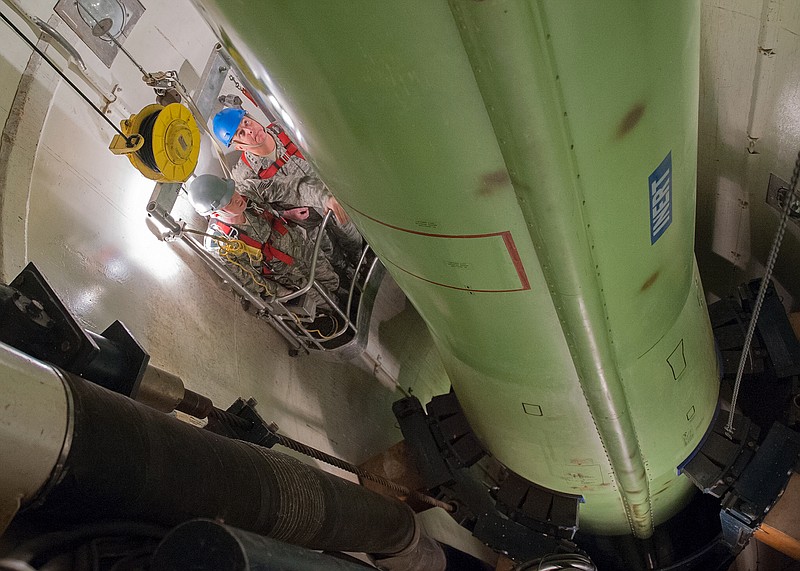WASHINGTON (AP) - In taking a deep look at trouble inside U.S. nuclear forces, Defense Secretary Chuck Hagel is searching for the root causes of recent Air Force missteps but also for ways to make the nuclear warrior's job more attractive at a time when the military has turned its attention away from such weapons.
Nuclear missile duty has lost its luster in an era dominated by other security threats. It's rarely the career path of first choice for young officers. And yet Hagel and others say it remains important to U.S. national security.
On Friday he put the magnitude of the Air Force's nuclear responsibilities in stark terms, quoting President John F. Kennedy who said in 1963 that nuclear airmen "hold in their hands the most awesome destructive power that any nation or any man has ever conceived." And so it is worrisome, Hagel said, to realize that some of those same airmen may use drugs, cheat on their proficiency tests and have engaged in other dangerous misbehaviors.
The Associated Press in 2013 exposed a number of serious missteps in the nuclear missile force, including training gaps, leadership lapses, inspection failures, deliberate violations of security rules and elevated levels of domestic violence and other misconduct.
Hagel now wants to know what ails the force.
"We know that something is wrong," he said, and it includes what some call an attitude problem inside the force.
Dissatisfaction among the officers responsible for operating intercontinental ballistic missiles, or ICBMs, is not new, but it appears to be grabbing the attention of more senior Pentagon leaders, including Hagel and Air Force Secretary Deborah Lee James, who was sworn in Friday as the service's top civilian official.
"Recent allegations regarding our ICBM force raise legitimate questions about (the Pentagon's) stewardship of one of our most sensitive and important missions," Hagel said Friday at the swearing-in ceremony for James, who has been on the job for four weeks and is only the second woman to lead the Air Force.
"Restoring confidence in the nuclear mission will be a top priority," he added.
One repair tool that James and Hagel might choose is incentive pay or other extra benefits for the young officers who do as many as eight 24-hour shifts per month in the underground command bunkers from which they would execute any presidential order to launch a nuclear-tipped Minuteman 3 intercontinental ballistic missile, or ICBM.
The ICBM force has shrunk by about half since its Cold War peak, with 450 Minuteman 3 missiles now stationed in underground silos spread across vast expanses of Montana, North Dakota and portions of Wyoming, Colorado and Nebraska. It's not a growing business. The Obama administration is considering reducing to 400 missiles as it prepares to adhere by 2018 to limitations under the New START treaty with Russia.
Hagel wondered out loud Friday whether the remoteness of these ICBM locations might be a factor in dampening morale among missile operators.
"Do they get bored?" he asked.
More broadly, Hagel is searching for the underlying reason for the failures in the Air Force ICBM force that prompted him Thursday to order an "action plan" from military leaders to identify remedies. He also said he would convene a nuclear summit at the Pentagon to address nuclear personnel problems.

